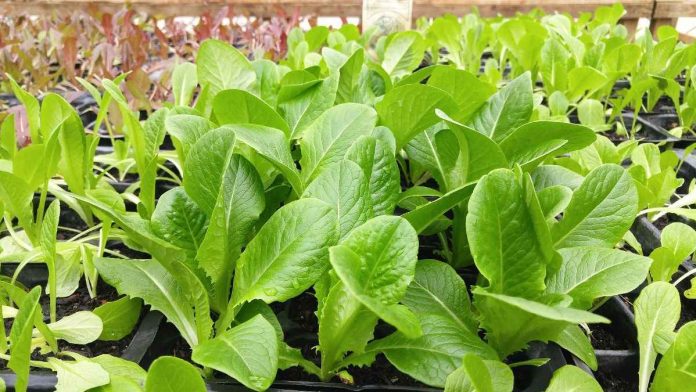CSIR-PGRRI Promoting the Cultivation of Indigenous Leafy Vegetables

The Plant Genetic Resources Research Institute of the Council for Scientific and Industrial Research (CSIR-PGRRI) is promoting the cultivation of indigenous leafy vegetables in the southern part of Ghana. These vegetables are nutritious with high protein and mineral contents, including calcium, phosphorus and manganese.
The Institute is, therefore, working in collaboration with the Crops Research Institute (CRI) to upscale the cultivation of Amaranthus (Aleefu), Corchorus (Ademe/Ayoyo), and Roselle (Sule).
It is conducting participatory varietal selection to allow farmers to choose their preferred indigenous leafy vegetable types suited to their farming conditions and contexts.
Under the Seeds for Resilience project (SfR), the PGRRI selected indigenous leafy vegetables, which thrive in poor soils and under harsh weather condition, with low input requirements.
Dr Lawrence Misa Aboagye, a Chief Research Scientist at the CSIR-PGRRI, disclosed this in an interview with the Ghana News Agency after the inspection of farmers’ field trials at Boadi in the Oforikrom Municipality of the Ashanti Region.
He said because the selected indigenous leafy vegetables had adapted to the environment, they had acquired certain characteristics that enabled them to withstand drought.
The seeds collected were multiplied last year to obtain sufficient planting materials for the farmers, he said.
“Seeds of 20 different types of these vegetables were sent to farmers at Boadi for assessment in their fields.”
The SfR project is a three-year project, started in 2019, with support from the Global Crop Diversity Trust, Germany.It has engaged farmers from the bottom-up, through which indigenous leafy vegetables and Bambara groundnut user groups have been established in the Upper East (Manga), Northern (Golinga and Libga) and the Ashanti (Boadi and Barekese).
In the Northern Region, the Institute is collaborating with the CSIR Savanna Agriculture Research Institute to implement the project.
Dr Aboagye said the farmers were allowed to select seeds suitable to their peculiar conditions, which differentiates the project from the normal convention where a research institute selects and introduces crop varieties/ genotypes to farmers.
Dr Mrs Patricia Pinamang Acheampong, the Principal Research Scientist, CSIR-CRI, expressed the hope that the participatory selection approach would help the Institutes to track farmers with various characteristics. That, she believed, would facilitate the adoption of the varieties.
Baaba Rauf Abdullai, a farmer at Boadi, encouraged his colleagues to embrace the planting of the local vegetables. He said they were highly nutritious, environmentally friendly and easy to cultivate.
